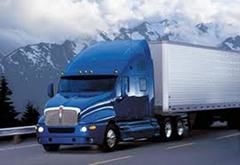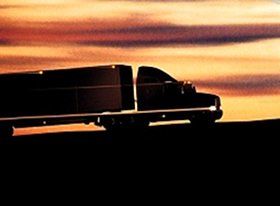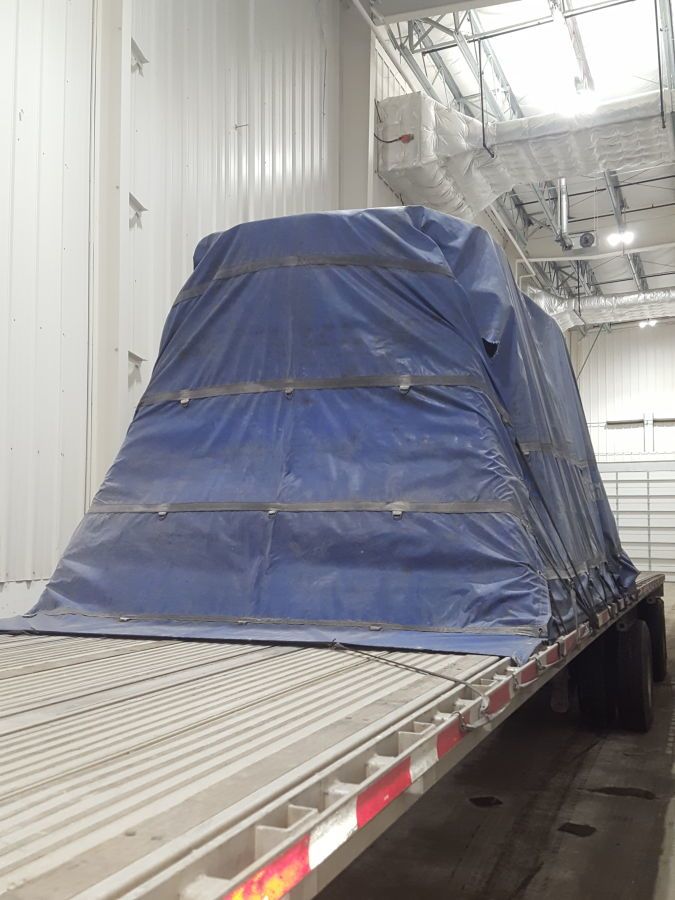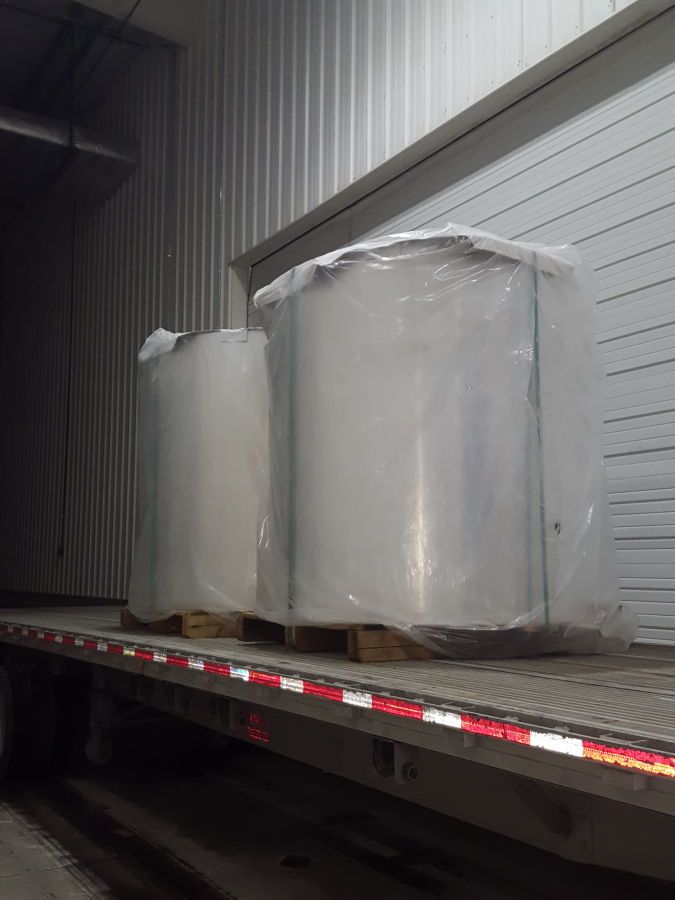Tarp Or No Tarp?
Topic 24435 | Page 1
Maybe the exposed lumber load IS covering the secret government project though....
Sometimes it just comes down to what the customer wants. I've hauled freshly milled green lumber before, and had to tarp it. Other times I've hauled kiln-dried finished boards with no tarp. If a customer pays, I'll throw a tarp on anything.
I haul a lot of loads of shingles. At first I would ask what the heck am I tarping these for? Uhh, they're waterproof, hello! Not only that, they are stored outside at the shipper before being loaded. But the receiving customer wants to keep the product free from road grime and salt, which makes sense.
So yeah I gave up a long time ago on figuring out why some things are tarped, and some aren't. As long as it puts money in my pocket each time, who am I to judge?
Shipper:
The customer who is shipping the freight. This is where the driver will pick up a load and then deliver it to the receiver or consignee.
Maybe the exposed lumber load IS covering the secret government project though....
Maybe you're onto something there...

Maybe the exposed lumber load IS covering the secret government project though....
Hmmmm, maybe! lol
Tarping loads is mysterious sometimes. I used to pick up slinky coils up somewhere, like maybe Wisconsin, and deliver them to a place in Tennessee. We had notes in the Qualcomm telling us what dates we had to tarp the load and what dates we didn't have to tarp it. The customer always unloaded them outside in a dirt (sometimes mud) yard. They literally had thousands of these coils sitting out there rusting in the elements. But brother if you didn't tarp that load during those dates they specified, you'd get your load rejected and have a real problem on your hands. It turned out there were certain winter months that the customer insisted on that load being tarped. It was to keep the road salts from affecting the metal. Apparently the road salt caused a problem in the manufacturing process they were doing with those coils.
These days I strictly haul aluminum extrusions on a dedicated account. Even though aluminum doesn't rust, we are required to tarp every load. Oftentimes we pull a Conestoga trailer which eliminates the tarping process, but still everything must be kept dry. Moisture will cause discoloration where two pieces if aluminum are touching. Moisture also causes oxidation which causes problems with the welding processes used on aluminum.
Many of our customers don't do any welding on their products. I go to a lot of trouble tarping it before I leave, and untarping it upon arrival, only to watch them stack it outside in the elements. Oh well, I get paid good for what I do. Who can complain?
I've hauled high value loads that they wanted tarps on them only to keep anyone from seeing what it was I was hauling.
Qualcomm:
Omnitracs (a.k.a. Qualcomm) is a satellite-based messaging system with built-in GPS capabilities built by Qualcomm. It has a small computer screen and keyboard and is tied into the truck’s computer. It allows trucking companies to track where the driver is at, monitor the truck, and send and receive messages with the driver – similar to email.HOS:
Hours Of Service
HOS refers to the logbook hours of service regulations.This load i am hauling now is tarped. Finished aluminum sheeting. It specifically says in the delivery nstructions, that it cannot be exposed to any elements, or road salt.

So it would seem that metal loads are the ones that mostly require tarping. I can see that. Wouldn't moisture damage wood loads as well? I would think that they would warp the boards? Guess it depends on the customer and type of load.

I used to load lumber in Windsor, Ontario that they picked up out of 18 inches of standing water/slush/ice/mud that had to be tarped. Made no sense to me, but I had to do it.
Notice all the salt on this tarp?

Underneath are two 23k coils of sheet aluminum. In addition to my tarp, each coil is double wrapped in plastic.

Precious cargo indeed. You're looking at about 46,000 lbs worth of future beer cans!
New Reply:
New! Check out our help videos for a better understanding of our forum features

















Preview:
This topic has the following tags:
Driver Responsibilities Flatbed Truck Equipment Trucking Humor







 TT On Facebook
TT On Facebook
I'm curious as to why some flatbed loads that I see on the road are covered and others are not. For example I saw a trailer hauling a load of lumber with no tarp and then I saw another truck that was covered. Clearly I am wrong to assume that every load requires tarping.
As a side anecdote, when I was a kid I always thought that the loads that were covered were some kind of government load that is classified.

DOT:
Department Of Transportation
A department of the federal executive branch responsible for the national highways and for railroad and airline safety. It also manages Amtrak, the national railroad system, and the Coast Guard.
State and Federal DOT Officers are responsible for commercial vehicle enforcement. "The truck police" you could call them.